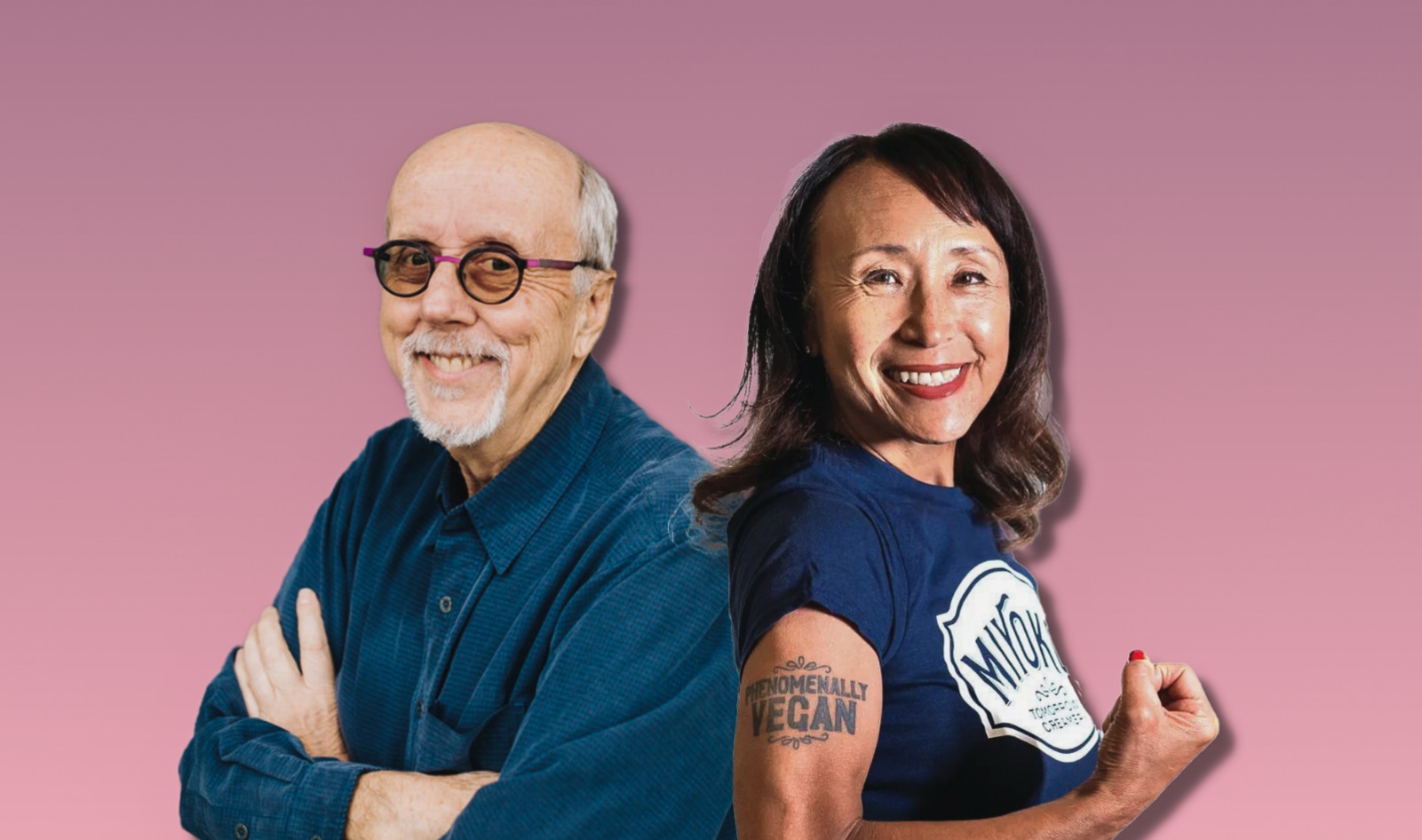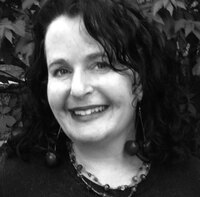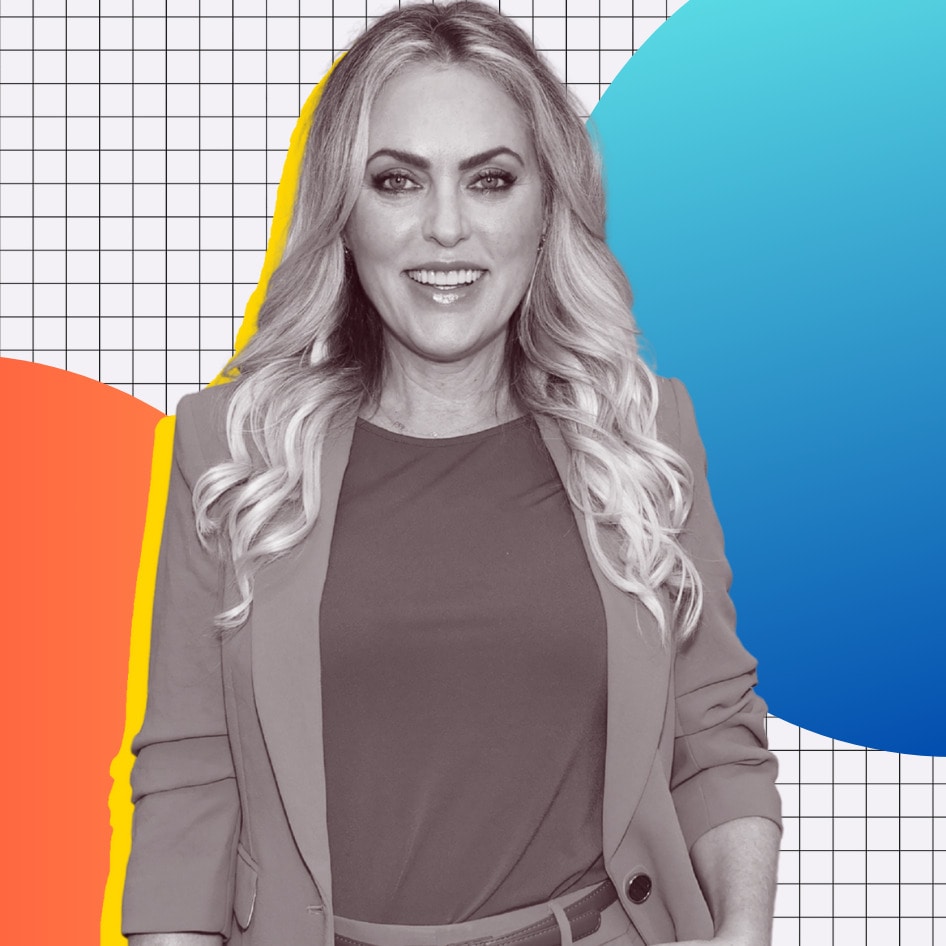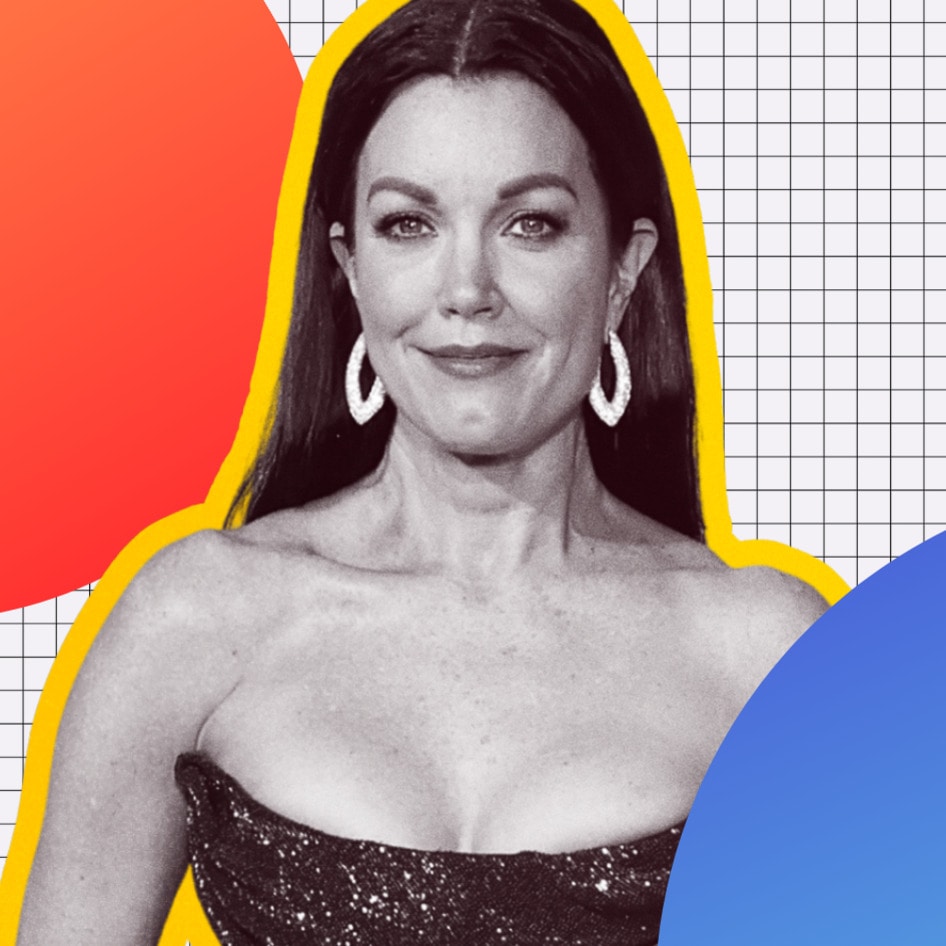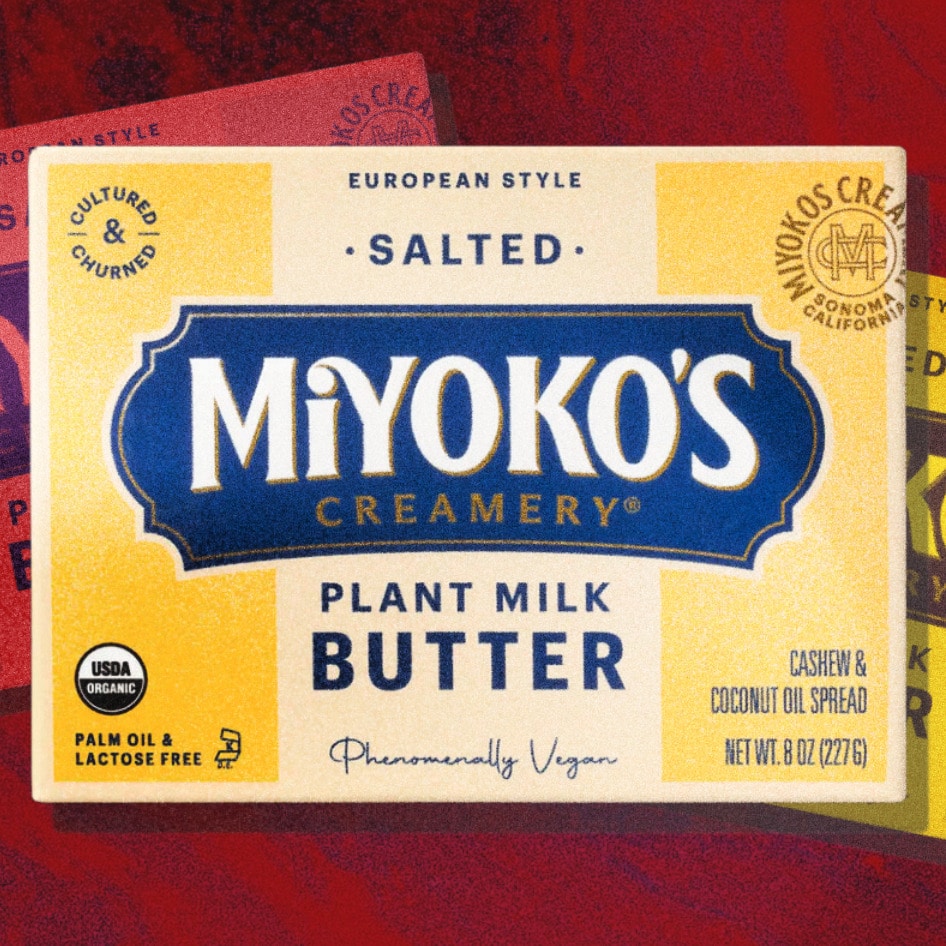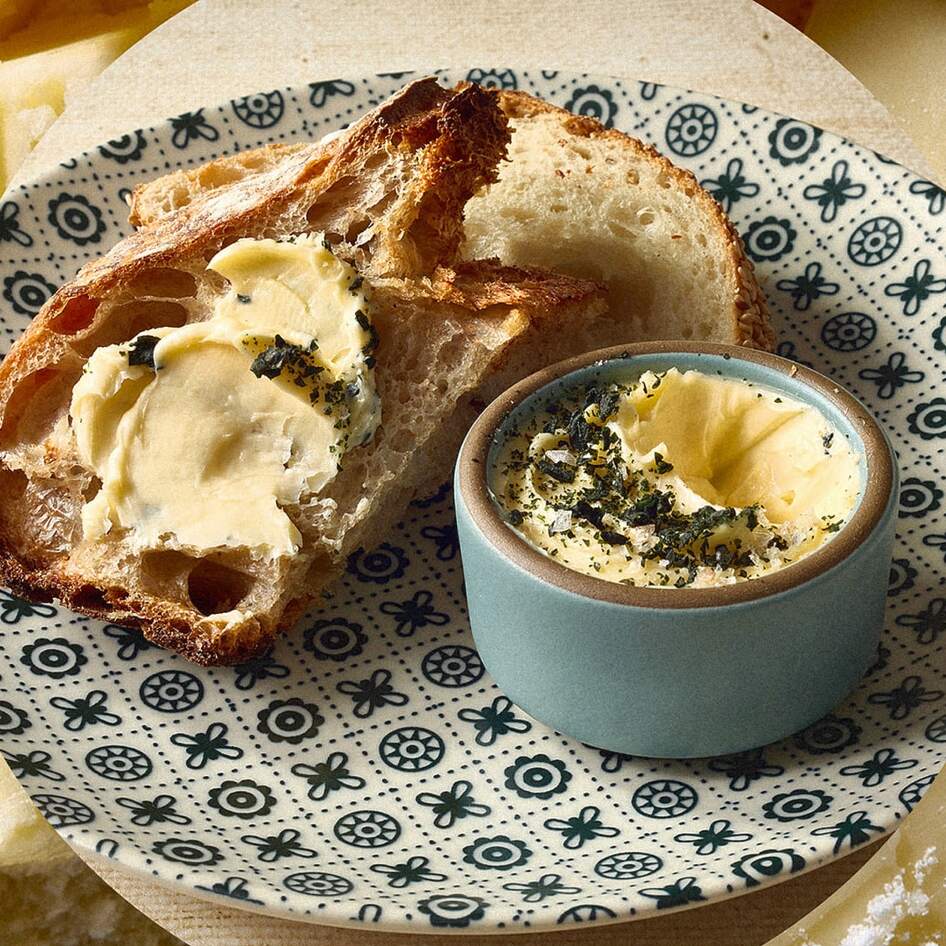Earth Day, which was first celebrated on April 22, 1970, is an annual event dedicated to educating and advocating for environmental protection. Is promoting plant-based diets enough for this planet in peril? Not for Seth Tibbott, founder of vegan food brand Tofurky and parent company Turtle Island Foods, and Miyoko Schinner of plant-based dairy brand Miyoko’s Creamery. They share the influence that the early environmental movement had on their lives and career trajectories, as well as current and future sustainability goals.

VegNews: How did Earth Day inspire you as a young man? Do you think it had any bearing on your life’s path?
Seth Tibbott: In 1970, I was in my sophomore year in college in Ohio. My main concern and activism centered around protesting the Vietnam war but I was becoming aware of other issues, too. Civil rights, women’s rights, and economic disparities to name a few. So when Earth Day was first celebrated it brought my attention to environmental issues as well. Earth Day in part pushed me to drop out of school in 1973 and take a job teaching sixth graders about our imperiled natural world at Glen Helen Outdoor Center in Yellow Springs, Ohio. This was a huge transformation for me and teaching kids “how life on earth works” outside the walls of their classrooms became a career path and my north star throughout my 20s until I started what was to become the Tofurky Company in 1980 when I was 29.
VN: What are some of the ways that Tofurky is adapting to better information about sustainability to shrink your carbon footprint, for example, with packaging and factory practices?
ST: I am quoting from Doug Rossi, Tofurky’s Head of Sustainability, and Erin Ransom, Tofurky’s Vice President of Marketing here. By 2030, Tofurky aims to be run as a Net Zero and Zero Waste organization. We have supplementary goals of being water positive and sourcing 80 percent of our materials from organizations that participate in THESIS, which is a sustainable supply chain tracker.
In the short term, for 2022 our goals include reducing our material waste outputs to 16 percent. This means decreasing our dependence on virgin plastics and reducing supply chain waste destined for landfills and food scraps from operations workflow.
We are active participants in Energy Trust of Oregon’s Strategic Energy Management program, which aims to help businesses monitor energy use while identifying opportunities for improvement. Through this program, we look to not only reduce our annual energy use by five percent but to create a behavior change that encourages all employees to adopt a continuous improvement mindset.
We are also currently working on collecting information about our Scope 3 emissions, those that come from our suppliers and distribution. Through this, we’ll be able to know the full scope of our emissions and work with our suppliers to create a sustainable community practice.
With such great availability of renewable energy in the Columbia Gorge, we are committed to increasing our use of renewable energy over non-renewable.
Within the last year, we have been able to divert more waste through improved recycling programs by focusing on targeting a number of different plastics that can be upcycled through our recycler.
VN: How would you like to continue to meet green goals as an individual?
ST: Of course continuing to produce delicious and affordable vegan food that finds its way into more households will always be one of my largest environmental impacts. On a personal level, I also would like to fly less and drive more to conferences and events in my electric car as a way of lessening my impact. I am being more selective about travel now and with the pandemic normalizing Zoom meetings, it has eliminated some travel for me personally but also for our business which can now meet with buyers and suppliers online instead of flying people all over the place at great expense to the planet.
I started on my vegan path in 1972 initially for environmental reasons, and I am so grateful events like Earth Day helped wake me up and pushed me forward.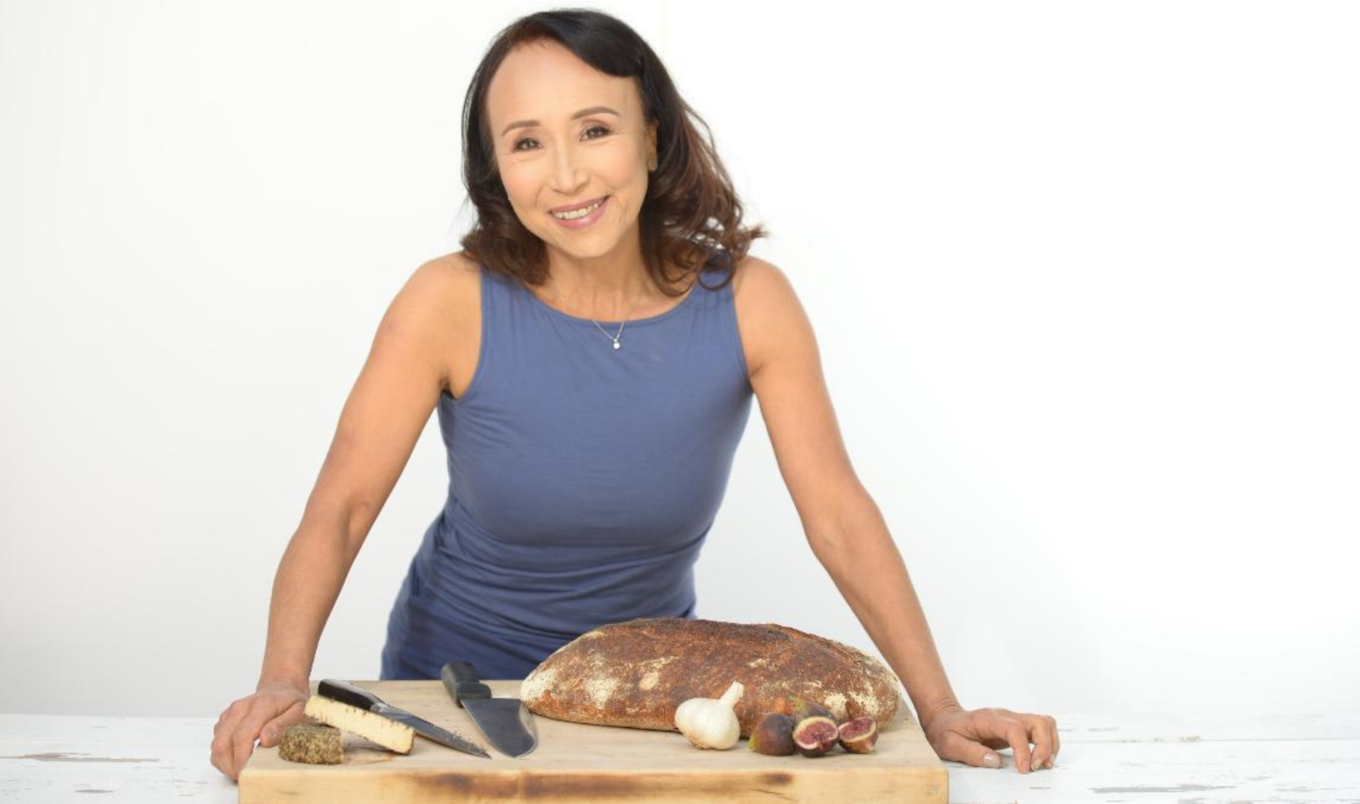
VN: How did Earth Day or the environmental movement, in general, inform your life direction as an activist and an entrepreneur?
Miyoko Schinner: When it comes to the environmental movement, we are at a critical point. It’s now or never. If we aren’t spending our time doing something to combat climate change and save the ecosystem for all living creatures, what are we doing? If we aren’t actively working to be part of the solution, then we are part of the problem.
VN: What are some of the ways that Miyoko’s Creamery is adapting to better information about sustainability to shrink your carbon footprint?
MS: At Miyoko’s, we are always pushing ourselves to learn and improve in the name of sustainability–further than simply encouraging a dietary shift to include more plants.
We know that food production has a multifaceted impact on our planet, and it’s important to us to be critical and reflective of our own contributions. We focus on everything from conscientious ingredient sourcing and streamlined operations to researching new sustainable packaging solutions. At our headquarters in Petaluma, we participate in Sonoma Clean Power’s CleanStart program to receive renewable and carbon-free electricity. This year, we partnered with Replate, a national food rescue nonprofit, to make sure every cheese wheel and butter block we produce makes it into a meal, rather than a landfill. We are very careful about who and where we source our ingredients from. Our cashews, for example, are grown regeneratively and are rainfed, without the use of synthetic fertilizer or irrigation. Miyoko’s has built a strong relationship with the community we source our cashews from in Vietnam and has installed toilets and water systems in four local schools. As we discover new plant-milk ingredients through R&D, we are searching for new domestic farm partners to help us grow them sustainably.
VN: How would Miyoko’s Creamery like to continue to meet green goals as a business?
MS: We are always looking to improve. We see sustainability as a holistic term–it applies to our sourcing practices and operations, but also to our communities. One exciting project on the horizon for Miyoko’s is Dairy Farm Transition (DFT). DFT is a program dedicated to inspiring sustainability on farms and resilience within farming communities.
Many dairy producers are facing immense challenges, forcing many to consolidate or close. In 2021, the United States lost six percent of its dairy farms, landing us at less than 30,000 dairy farmers across the nation. The DFT program offers a different path for farmers facing these pressures. Rather than consolidating or closing, we’re looking to work with dairy producers to help them reimagine their farms in regenerative specialty crop agriculture. We’re offering comprehensive business and education resources and support to producers during the transition, and we will be purchasing the new crops to use in our plant-milk cheeses and butters. This will allow us to work closely with our producers to collaborate on new climate-smart agricultural practices. Most excitingly, we will be measuring the impact of this transition on farm sustainability and financial profitability.
For more about Earth Day, read:
20 Vegan Sustainable Living Instagrammers to Follow
How to Replace Chicken Eggs in Cooking, Baking & More
How and Why I’m Making My House Net-Zero
JUMP TO ... Latest News | Recipes | Guides | Health | Subscribe

